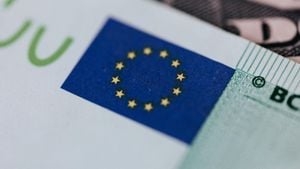Spain, known for its stunning landscapes and vibrant culture, is also becoming notorious for various scams targeting unsuspecting tourists.
An expat residing there, James Blick, along with his partner Yoly, who runs the popular Spain Revealed YouTube channel, shared insights on ten common scams tourists should be wise to.
Despite Spain being considered relatively safe for travelers, these scams can put a damper on anyone's holiday experience.
One of the most alarming scams mentioned involves thefts from outdoor dining areas.
James recounted how thieves can distract diners with signs and swiftly snatch valuables right from the table, leaving the victim stunned.
"Do not leave your phone, wallet, or anything else on the table," he warned emphatically.
Another alarming trick is the clipboard scam, where individuals with clipboards ask for signatures for bogus petitions.
Once you sign, they often pressure you for donations, leaving you vulnerable to pickpockets during the distraction.
This is especially common when you’re signing, as another person may be lifting your belongings.
The rosemary scam operates similarly, with someone offering you rosemary for 'good luck,' only to quickly demand payment thereafter.
Those little sprigs may seem innocent enough, but it's wise to decline and keep walking.
Tourists should also watch for the free bracelet scam, where someone ties a bracelet on your wrist and demands cash before you can react.
James stressed the importance of remaining vigilant and moving away quickly if approached with such offers.
While taxi scams are less prevalent, he shared his experience of being overcharged right after arriving from the airport.
He advised using only licensed taxis and always ensuring the meter is running during the ride.
“Only pay what the meter indicates,” he emphasizes, highlighting the potential for hidden fees.
Fake ticket scams are another serious concern, as scammers often create phony websites to sell non-existent tickets for local attractions.
It’s safest to purchase tickets directly from official sites or recognized platforms to avoid falling prey.
Though restaurant scams aren't as widespread, ask about prices before ordering, as some places might serve you dishes you didn’t choose.
Prices should be clearly displayed, including any extra costs for items like bread or olives placed on your table.
Patrons are also reminded to ask for tap water explicitly, so they don’t end up with pricey bottled water.
On the financial side, James warns against using Euronet ATMs, as they charge high fees and offer poor exchange rates.
Also, when it’s time to navigate the metro, keep your wits about you if approached by someone offering help with the ticket machine.
It may be another ploy to distract you, enabling pickpockets to strike at the same time.
Lastly, tourists should be alert to the bird poo scam, where someone might throw something on your clothes before trying to help clean it.
The scammer usually takes the opportunity to steal valuables during the charade.
It's clear: staying informed can significantly improve one’s experience when traveling through Spain.
Though the prospects of enjoying the vibrant culture and breathtaking views are immense, tourists must remain vigilant to avoid these pitfalls.
Proper preparation and awareness of these common scams can go a long way to ensuring safety and enjoyment.



